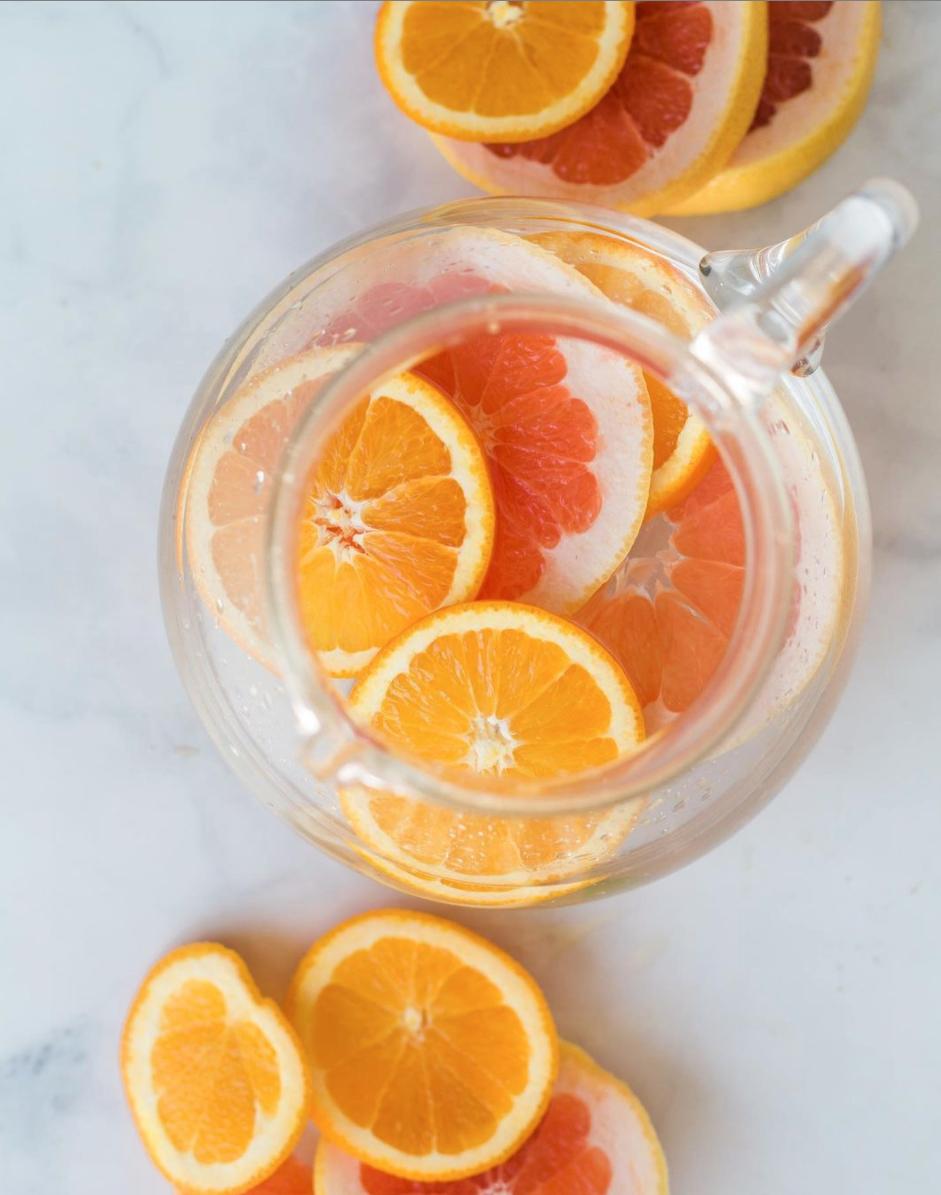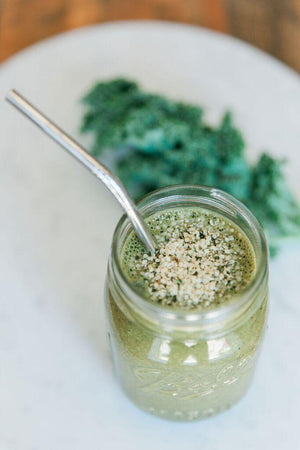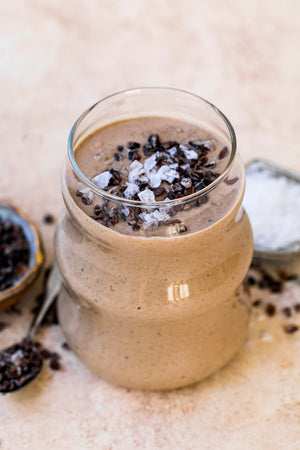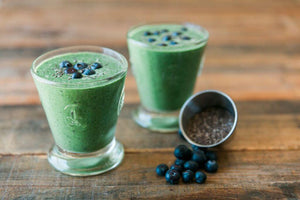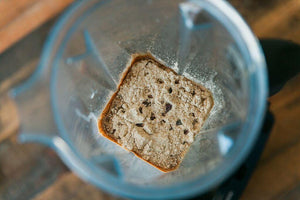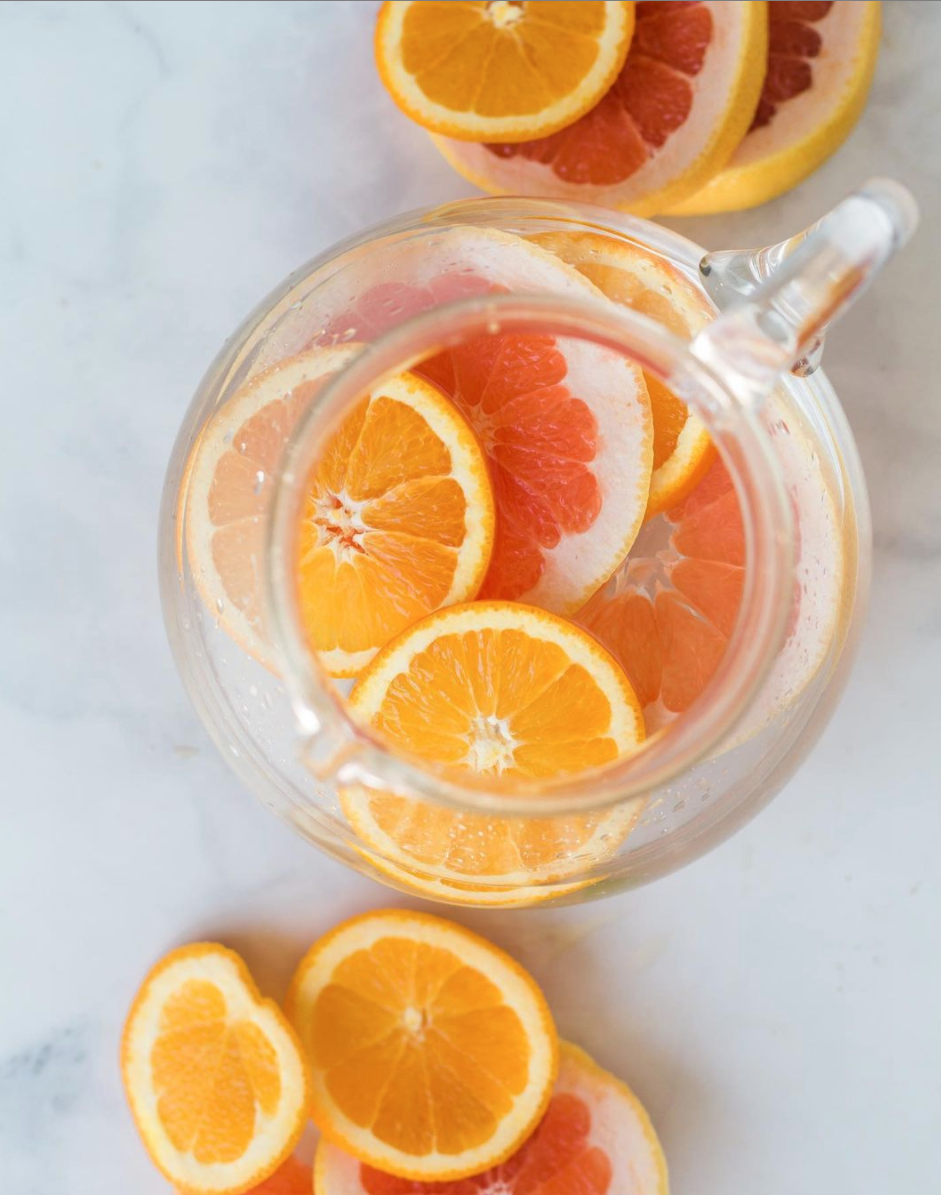
This page contains affiliate links and are asterisked as they appear.
Staying hydrated is hugely important for health, and I’m all about helping you find out just how much you should be drinking each day to optimize your health and hydration levels.
While traditional recommendations range from 8 to 11 cups a day, I like to think of this as more of a jumping off point. In reality, there’s a bit more nuance to hydration than drinking exactly the right number of ounces.
Water is a critical component of health. It makes up about 60% of your weight and plays a part in regulating and supporting almost all of processes in your body, including things like:
Thermoregulation (body temperature control)
Proper blood flow and cardiovascular health
Digestion and transporting nutrients through the gut and into the bloodstream
Protection your tissues (think organs, eyes, nasal passages, and so on), spinal cord, and joints
Optimal brain function (everything from memory to energy levels)
Biochemical reactions
Removing waste from your body
Here’s another thing to consider: lower blood volume means more concentrated (aka higher) blood glucose. My goal with the Fab 4 is to help you achieve more balance in your blood sugar levels all day so that you experience fewer crashes and cravings that get in the way of your health goals. This is why hydrating well is such a key part of your wellness routine.
Let’s go back to that range of 8-11 cups of water a day. That’s a great starting point and can give you an idea of how much you personally need. If you’re regularly participating in prolonged exercise (think several hours worth), live at a high altitude, or in a hot climate, you’ll likely end up at the higher end of that range.
Other examples of those with higher hydration needs are people following a low carb diet or who regularly practice intermittent fasting. In both of these cases, your body releases less insulin, which, among other things, tells your body to excrete more fluid and sodium. Not only are you losing more fluid with these lifestyles, you’re also losing electrolytes!
One of the many roles of water is to regulate blood volume and flow, as well as proper cell function. But water isn’t the only driver of this regulation. Electrolytes, including sodium, also contribute to fluid balance and regulation and so play an important role in regulating hydration status by balancing fluids inside and outside your cells. Years ago, I started adding a little pink salt to my water each morning to support appropriate electrolyte levels, but LMNT has made this so much easier and even more efficient.
LMNT* is an electrolyte drink designed to help you keep the most common electrolytes - sodium, potassium, and magnesium - at optimal levels so you can feel your best, elongate that blood sugar curve, and calm cravings all day long.
Proper hydration (called euhydration) means having adequate fluids present in your body. This fluid balance depends on many factors, including both the intake and excretion of water and electrolytes. If you feel like you’re struggling to stay hydrated, first take a look at your daily water intake. Then consider where you’re getting electrolytes and if you fall into any of those categories of people with higher hydration needs. There are many factors that contribute to your hydration status and I’ve seen such positive results in my own life and in my clients by incorporating ½ to 1 packet of LMNT a day.
Including LMNT is an easy and efficient way to support your hydration needs. Right now, you can order a sample pack for just the price of shipping and try out several of their flavors to find your favorite. Learn more here*.
